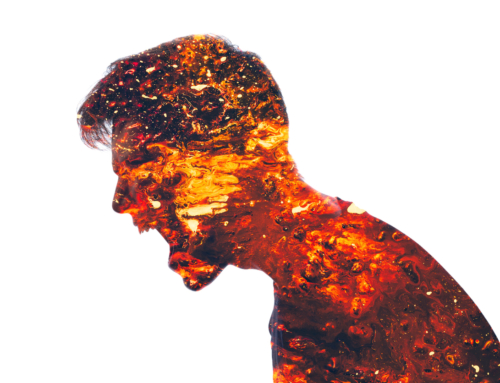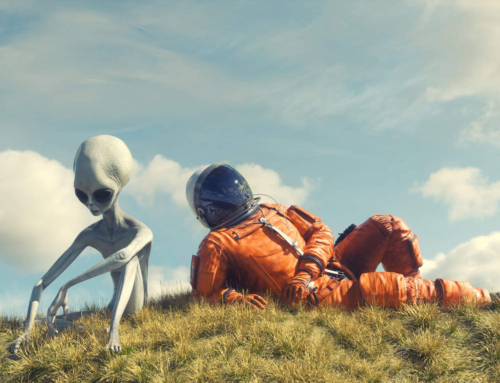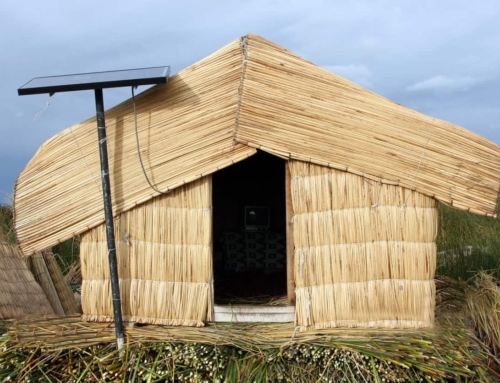I saw an ad for a Chevy truck last night. It had all the requisite touch points: the deep base male voice-over, the truck driving up an impossible mountain, a female passenger adoring the ride, and by association, her driver. What caught my attention was the line “… equipped to conquer the outdoors.” Like hundreds of other spinning, mud ripping, and zooming truck ads, it was typical. Apparently, we’re going to conquer the outdoors!
On the other channel was a failed candidate announcing his run for the presidency, again. I didn’t bother to watch it. I knew what he was going to say. He is what weak men think is a strong man.
On still another channel was a tired movie called Taken 3 starring Liam Neeson as a geriatric tough guy who hunts down bad guys and kills them in morbidly curious ways, but mostly with lots of spraying blood.
All this got me thinking about the connection of climate, politics, and our culture. We are inundated by appeals to be strong men by our media and advertising, whether it’s truck ads, wannabe macho politicians, or revenge porn. Strong sells.
It seems to me that if we want to solve our climate crisis, we will need to first solve our masculinity and identity issues. Though solving climate collapse directly may be easier.
If you’ve read my previous post on the Marlboro man, you understand that identity is a strong motivator for action. We need a compelling climate identity. Today our identity is defined by the opposition as woke, Prius driving, protesting, tree-huggers. We’re more than that, but the bigger strategic question we ought to be asking is what identity do we want to create?
We have values that are essential to a thriving community. Those values are compassion, empathy, inclusion, fairness, empowerment, family, freedom, and collective as well as individual responsibility. But who embodies those values? How do we show them? Who are our heroes? The Marlboro man?
The Marlboro man is an identity of dominant masculinity. Part of the narrative that strong men can control and overcome challenges though competitive strength, and that only the strong rise to the top. That man has dominion over the world, and that nature is simply a resource to be conquered. This narrative is engrained in our cultural stories from pioneers and manifest destiny, to the differences between the rich and the poor, to our politics, religion and entertainment. But we give away our freedom to this narrative.
It’s so prevalent that we don’t even notice it. It is an unconscious acceptance that life is a challenge internally and externally, and that we can be saved by a hero that rises to meet that challenge. In the Hero of a Thousand Faces by Joseph Campbell, he outlines the hero’s journey. The appeal of the hero works because it overcomes the helplessness in all of us and gives us a aspirational role model. Yet the goal of the hero’s journey is not power, status, or wealth. We do not seek be dominant against other races. Conquering the earth is not heroism. Nor is glorifying billionaires. The goal is redemption. In a humanistic sense, not religious.
I chose the Marlboro man as an example of identity because it is so powerful and so subliminal. He is a symbol of false redemption, but successful because the identity he bestows is power. Yet the Marlboro man, created to sell cancer-causing cigarettes, is corrupt. He is the allusion of power and what it means to be a man. Could we instead create an identity equally as powerful for climate without glorifying domination in the process?
For me it is doubtful that we will succeed in saving the earth just by changing the focus of our domination from money, political power, or inter-governmental competition to trying to only control the climate, or simply fighting and subduing fossil fuel companies. No doubt, we will engage in this fight as it is necessary, but it doesn’t seem sufficient by itself. For me, it will require another type of change. Activation of our values in the rest of us. Recognizing how we are dependent on each other, and elevation of our heroes that embody this journey. The change required is an internal one. Developing an inner strength, particularly in men.
Another thing it will also require is understanding our part in the web of life on earth.
British scientist James Lovelock developed the theory of Gaia, that the earth was indeed a living organism. “His hypothesis includes how the biosphere and the evolution of organisms affect the stability of global temperature, salinity of seawater, atmospheric oxygen levels, the maintenance of a hydrosphere of liquid water and other environmental variables that affect the habitability of Earth.” That organisms, including humans, co-evolve with their environment.
The theory has been criticized in its opposition to strict Darwinism and survival of the fittest. But perhaps it changes what it means to be a man(kind) and recognizes our interdependence.
What has this got to do with climate strategy and communications? We can add the potential of Gaia, our values, and our interdependence to our strategy and communications. Creating more stories about how we are helping each other. Celebrating our heroes. Creating an attractive identity.
This doesn’t mean our communications have to be full of cupcakes and rainbows. I am not advocating for the Age of Aquarius. We can be direct, insistent at the urgency, name our villains, and also be visionary and focused on the values we believe are necessary for survival.
I’ve said that if we can take a horse, a cowboy and the theme from the Magnificent Seven and get millions to smoke Marlboros, then we can do a better job of getting people to act on climate. I don’t mean we need to be the Marlboro man. Perhaps we need to create the Gaia man and the Gaia woman. Both heroes. Name a Gaia man or a Gaia woman. What values do they embody? Let’s get others to aspire to our values through our stories and their heroes.
This task is straightforward, but not simple. It requires spending more time telling stories and developing an inspirational identity. To do this with limited time and resources means spending less time on issues campaigns or focusing on facts and reasons, hoping to convince people. It means reframing what it is to be a man, what it means to be a human, and challenging the dominant masculine narrative that runs through our culture.
What we’re doing isn’t working well enough. Women, in particular, know this.
Thoughts?
Hobie,
‘We are all connected. Savor the Earth!’™
L. Hobart Stocking
SkyWaterEarth.com
hobart@skywaterearth.com
651-357-0110
Facebook: @SkyWaterEarthConnected
Twitter: @SkyWaterEarth








Leave A Comment